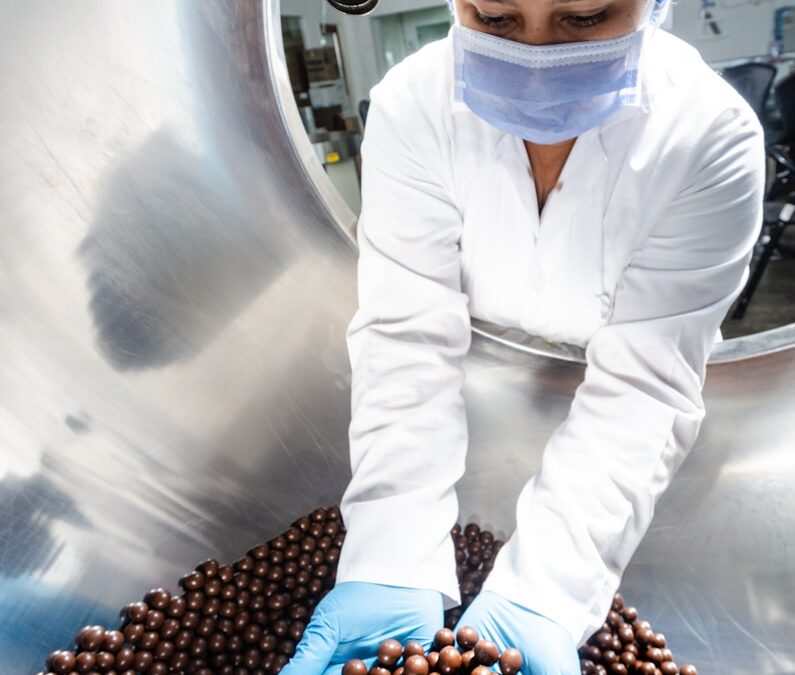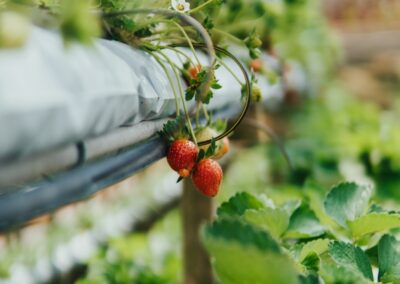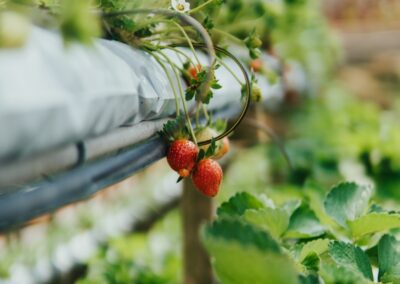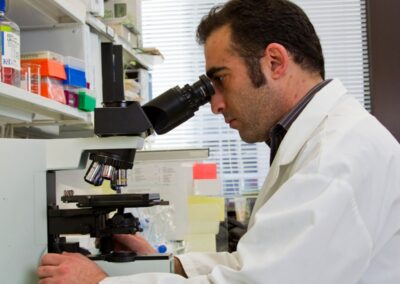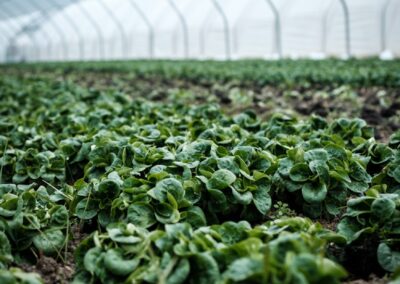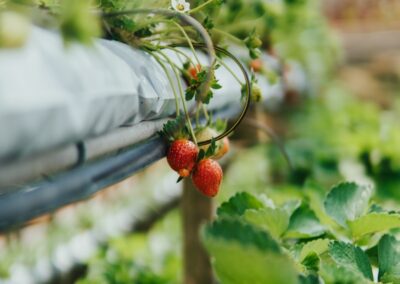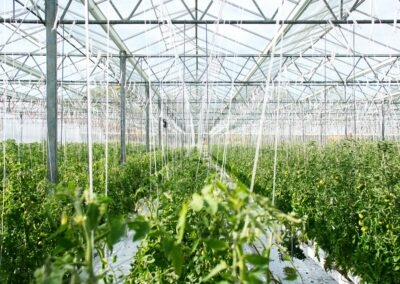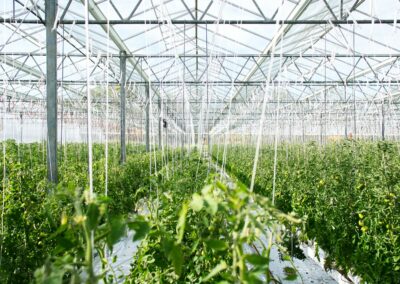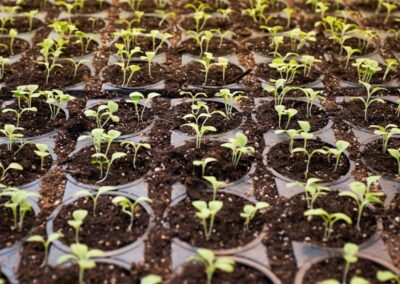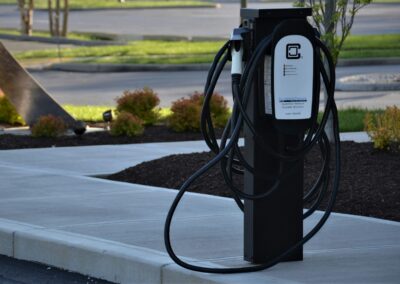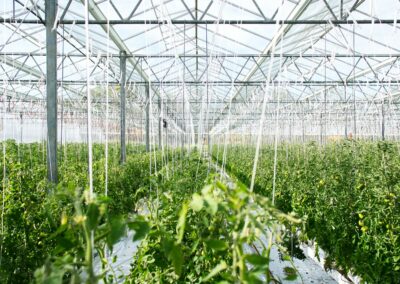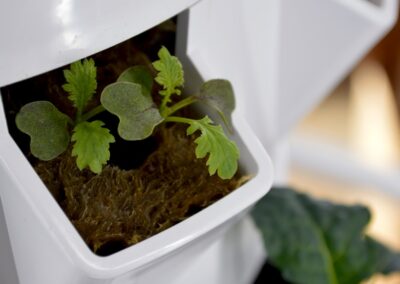How Aquaponics Ensures Reliable and Nutritious Food Production Year-Round
Aquaponics and Food Security are becoming increasingly important topics in the context of global sustainability and agricultural innovation. Aquaponics, an integrated system that combines aquaculture and hydroponics, enables the year-round production of both fish and vegetables, providing a reliable source of fresh and nutritious food. This method is especially relevant for regions like Saudi Arabia and the UAE, where traditional agriculture faces significant challenges due to arid climates and water scarcity. By adopting aquaponics, these regions can significantly enhance their food security while promoting environmental sustainability.
In Saudi Arabia and the UAE, where importing food is a common practice, aquaponics offers a viable solution for local food production. The closed-loop system of aquaponics efficiently uses water by recycling it through fish tanks and plant beds, significantly reducing water usage compared to conventional farming methods. This is particularly advantageous in arid regions where water is a limited resource. Moreover, the ability to produce food locally reduces dependence on imported goods, enhancing food sovereignty and reducing the carbon footprint associated with long-distance transportation.
Artificial Intelligence (AI) and Blockchain technologies further augment the efficiency and reliability of aquaponics systems. AI can monitor and adjust environmental parameters such as water quality, temperature, and nutrient levels in real-time, ensuring optimal conditions for both fish and plants. Blockchain, on the other hand, provides a secure and transparent method for tracking the production and distribution of food, ensuring traceability and building consumer trust. These technologies not only improve the efficiency of aquaponics systems but also contribute to the overall goal of achieving food security in regions like Riyadh and Dubai.
Integrating Modern Technologies to Boost Aquaponics Efficiency
Modern technologies play a pivotal role in enhancing the efficiency and scalability of aquaponics systems, thereby contributing to food security. AI-driven systems can predict and manage the health of fish and plants by analyzing data from sensors and making real-time adjustments. This level of automation reduces the need for manual intervention and minimizes the risk of human error, leading to more consistent and reliable food production. In regions like Riyadh and Dubai, where the demand for fresh and locally produced food is growing, AI integration in aquaponics can significantly boost productivity and reliability.
Blockchain technology enhances the transparency and traceability of the food supply chain in aquaponics. By recording every transaction and movement of goods on a secure, decentralized ledger, Blockchain ensures that consumers can trace the origin and journey of their food. This transparency builds trust and confidence among consumers, who are increasingly concerned about food safety and quality. For businesses in Saudi Arabia and the UAE, adopting Blockchain in aquaponics not only enhances operational efficiency but also serves as a powerful marketing tool to attract health-conscious and environmentally aware consumers.
The use of Generative AI in aquaponics can revolutionize the way these systems are designed and operated. Generative AI can simulate different scenarios and optimize system configurations for maximum efficiency and yield. This technology can help farmers in Saudi Arabia and the UAE to design aquaponics systems that are tailored to their specific environmental conditions and crop requirements. Additionally, the Metaverse can provide immersive training and educational experiences for new adopters, reducing the learning curve and facilitating the widespread adoption of aquaponics.
Leadership and Change Management in Aquaponics Adoption
Successfully implementing aquaponics on a large scale requires effective change management and strong leadership. Business executives and mid-level managers need to be equipped with the knowledge and skills to oversee the transition to this innovative farming method. Executive coaching services can play a crucial role in this process by providing leaders with the tools to manage change, foster a culture of innovation, and align the organization’s goals with sustainable practices.
Effective communication is vital during the transition to aquaponics. Leaders must clearly convey the benefits of this system to all stakeholders, including employees, investors, and consumers. Emphasizing the environmental and economic advantages, such as reduced water usage, lower operational costs, and enhanced food security, can build a compelling case for adopting aquaponics. Additionally, showcasing successful implementations in cities like Riyadh and Dubai can serve as powerful examples and inspire confidence in the feasibility and benefits of aquaponics.
Management consulting firms can provide invaluable support in the adoption of aquaponics by offering strategic guidance and insights into best practices. These firms can help businesses navigate the complexities of integrating new technologies and sustainable practices into their operations. By collaborating with experts in AI, Blockchain, and the Metaverse, businesses can ensure the successful implementation and scaling of aquaponics systems. This holistic approach not only enhances productivity and sustainability but also aligns with the broader goals of environmental stewardship and food security in the region.
#Aquaponics #FoodSecurity #SustainableAgriculture #FreshFood #SaudiArabia #UAE #Riyadh #Dubai #AIinAgriculture #BlockchainInAgriculture #MetaverseInFarming #GenerativeAI #BusinessSuccess #ChangeManagement #ExecutiveCoaching #EffectiveCommunication #ManagementConsulting

